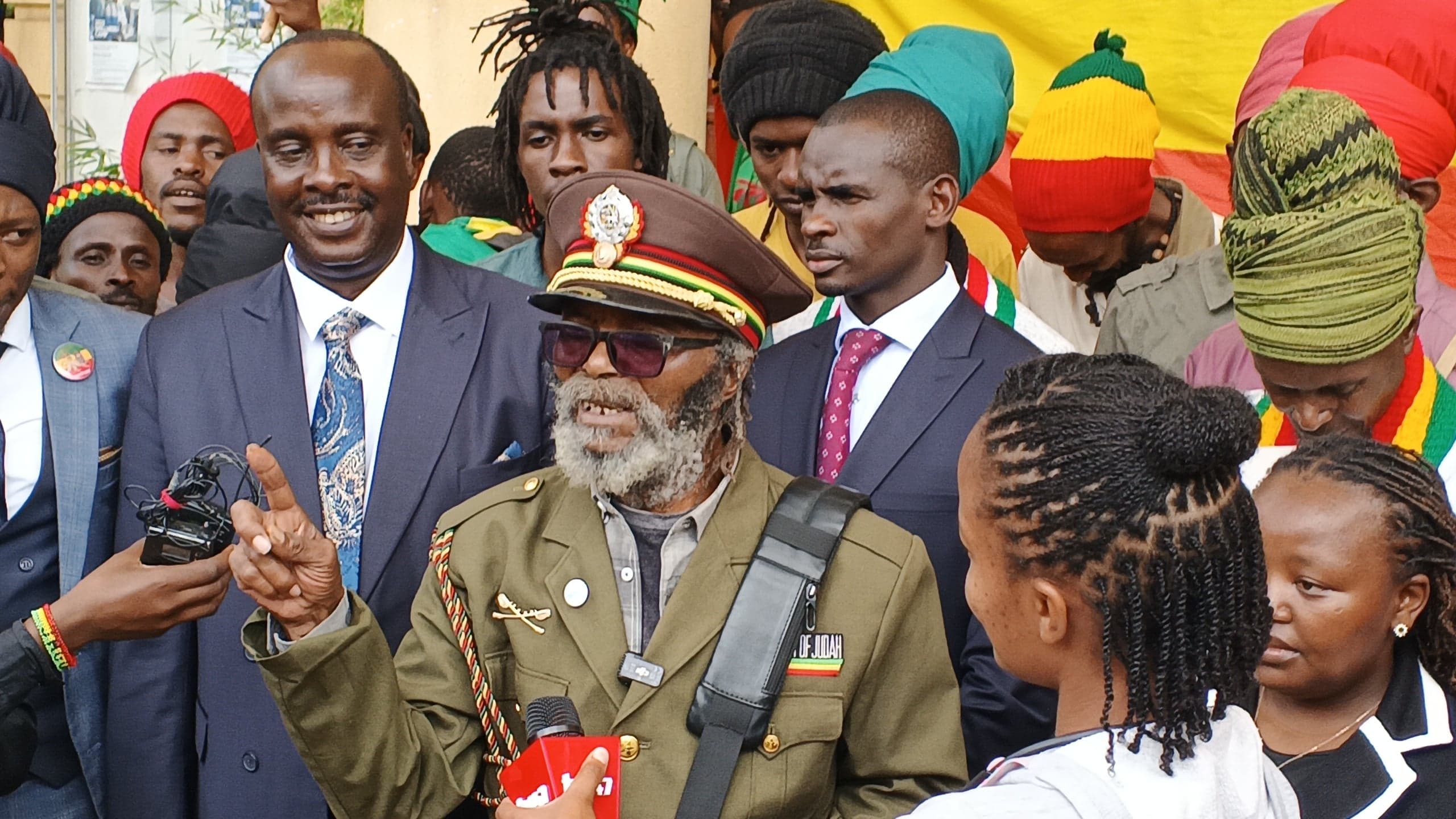We're loading the full news article for you. This includes the article content, images, author information, and related articles.
A constitutional challenge by the Rastafari Society of Kenya pits religious freedom against decades-old narcotics laws, forcing a national debate on the future of cannabis. A High Court decision, expected in 2026, could have significant cultural and economic implications for the nation.

The Rastafari Society of Kenya (RSK) has renewed its legal battle to decriminalise cannabis, arguing that the country's colonial-era drug laws are an unconstitutional violation of their religious freedom. The society’s constitutional petition, first filed in 2021, asserts that the prohibition of cannabis, a plant they consider a holy sacrament, infringes upon their rights as enshrined in the 2010 Constitution of Kenya. The case is scheduled for a new hearing in January 2026, with a potential judgment date set for Wednesday, 12 March 2026, EAT.
The petitioners are specifically challenging Section 3 of the Narcotic Drugs and Psychotropic Substances (Control) Act of 1994, a law that criminalises the possession and use of cannabis. Their legal team argues that this prohibition is discriminatory and violates several key articles of the Constitution, including Article 27 on equality and freedom from discrimination, Article 31 on the right to privacy, and Article 32, which guarantees the freedom of conscience, religion, belief, and opinion. According to court documents, the RSK contends that the law is hostile and intolerant to their faith, which requires the spiritual use of cannabis for meditation and connection with their creator. They have requested the matter be heard by a constitutional bench of at least three judges due to the substantial questions of law it raises.
In response, the Office of the Attorney General has argued for the case's dismissal, stating that the control of cannabis does not amount to discrimination. The government's position, detailed in court filings, is that there is no legal basis for permitting the use of narcotics for religious reasons and that the State's obligation to protect public health must be balanced against the sectarian interests of the Rastafarian community. The State further contends that the harmful effects of cannabis on consumers and the general public are a relevant and lawful consideration for maintaining its prohibition.
The court case has amplified a broader national conversation about the potential economic benefits of legalising cannabis. Proponents argue that a regulated cannabis industry could generate significant tax revenue and create thousands of jobs. One analysis suggests that a 20% tax on cannabis sales in Nairobi County alone could generate KES 9 billion annually, with the potential to create 50,000 to 100,000 direct jobs in the capital. This argument gained political traction during the 2022 presidential election when candidate George Wajackoyah made cannabis legalisation a central pillar of his economic platform. Advocates point to other African nations like South Africa, Rwanda, and Zimbabwe, which have legalised cannabis for medicinal or industrial purposes, as models for Kenya to follow.
However, this optimistic economic outlook is countered by significant public health concerns. The National Authority for the Campaign against Alcohol and Drug Abuse (NACADA) has reported alarming trends in substance abuse. A 2022 survey revealed that cannabis use in Kenya had increased by 90% over the previous five years, with one in every 53 Kenyans aged 15-65 currently using the substance. The report highlighted Nairobi as having the highest prevalence at 6.3%, followed by Nyanza at 2.4%. NACADA data also indicates that 234,855 Kenyans are addicted to cannabis, raising concerns that legalisation could exacerbate addiction rates and increase the burden on the healthcare system. Religious leaders from Christian and Muslim communities have also voiced opposition, expressing fears that legalisation would negatively impact unemployed youth.
For Kenya's Rastafarian community, the legal fight is deeply personal and reflects a long history of marginalisation. Adherents state they are frequently subjected to harassment, arbitrary arrests, and discrimination due to their spiritual practices. This discrimination has manifested in various sectors, including education. A landmark 2019 court case involved a schoolgirl who was expelled for wearing her hair in dreadlocks, a symbol of her Rastafarian faith. The High Court ultimately ruled that Rastafari was a legitimate religion deserving of constitutional protection, a decision that affirmed the community's right to manifest their beliefs.
Despite this legal victory for religious expression, the criminalisation of their central sacrament continues to place the community in conflict with the law. Members describe living in fear, forced to cultivate and use cannabis secretly to avoid prosecution under the stringent 1994 Act, which can impose severe penalties, including lengthy prison sentences. As they demonstrated outside the Milimani Law Courts in Nairobi on Tuesday, 18 November 2025, EAT, their chants and songs were a call for cultural and religious equality. The outcome of their petition will not only determine the legality of cannabis but will also be a profound statement on the scope of religious freedom and minority rights in modern Kenya.
Keep the conversation in one place—threads here stay linked to the story and in the forums.
Sign in to start a discussion
Start a conversation about this story and keep it linked here.
Other hot threads
E-sports and Gaming Community in Kenya
Active 9 months ago
The Role of Technology in Modern Agriculture (AgriTech)
Active 9 months ago
Popular Recreational Activities Across Counties
Active 9 months ago
Investing in Youth Sports Development Programs
Active 9 months ago